Career prospects with Bachelor Economics
Profession and career
With a Bachelor degree in Economics, you will open up a wide range of career opportunities in business, politics, education, research and IT, as well as in the health and sustainability sectors. The specialist knowledge you acquire in the economics degree programme at Leuphana College will best prepare you for your future professional life.
Career prospects with a Bachelor degree in Economics
In the economics degree programme at Leuphana College, you will combine specialist knowledge with critical thinking and responsible action in order to be able to develop viable solutions for the challenges of the future.
In addition to subject-specific knowledge, you will also acquire interdisciplinary key competences in Bachelor Economics so that you can independently develop and convincingly present solution strategies in a national and international working environment.
Employment opportunities
- Supra- and international institutions
- Political institutions and consulting
- Educational and research institutions
- (Large) companies
- IT sector
- Environment and sustainability sector
- Non-profit and economic development organisations
- Health sector
Supra- and international institutions
Economists can provide advice in supra- and international organisations (e.g. European Commission, World Bank, International Monetary Fund, World Trade Organisation). They work closely with high-level decision-makers to produce economic and statistical analyses and develop new economic policies (e.g. in the field of financial markets, public finance, economic integration and development or international trade).
Using data analysis and research results, economists can also contribute to development aid projects, for example on topics such as agriculture, public sector governance or climate change.
Policy institutions and consulting
Economists can draw up strategic plans, advise politicians and make forecasts about the economic effects of political measures. The demand for economists' analysis and advice is diverse and ranges from federal and state ministries to regulatory authorities (e.g. Federal Network Agency, Federal Cartel Office). As critical thinkers in the tradition of evidence-based policy, economists can advise on very different economic policy fields, e.g. the labour market, education, urban planning, transport, trade or equality. Economists are also employed in the administration to support, among other things, the modernisation and digitalisation of the administrative apparatus.
Economists can work as research assistants or consultants in ministries, political parties, associations or foundations. They are responsible for factually related topics, support member companies or carry out external lobbying work. Furthermore, economists can be employed in trade union organisations. Economists advocate for workers' rights and try to bring about change in complex structures.
Educational and research institutions
With a successful degree in economics, you can also choose a career at university. Thanks to their solid methodological and statistical training, economists can also work in statistical offices and research institutes. The focus of their work is on collecting and analysing empirical data in order to verify assumptions about economic developments and relationships with the help of mathematical methods and to make economic policy recommendations.
(Large) companies
Graduates of economics also have very good career opportunities in the private sector. Economists can work as management consultants, for example. As external service providers, they analyse processes and structures in the company, for example, in order to increase profitability or to secure and expand the economic success of the company. In human resources management, economists provide services for companies in the search for and selection of suitable specialists and managers, they maintain personnel statistics or develop concepts for incentivising employees.
With the corresponding postgraduate studies, economists can also act as auditors, audit companies (e.g. annual audit) and advise clients on business management and tax issues.
In the insurance and reinsurance market, economists take on tasks in risk management and risk analysis. They identify, analyse and evaluate possible risks that could jeopardise the successful further development of a company and create complex reinsurance concepts and coverage models. Banks also demand the analytical skills of economists.
Economists not only prepare macroeconomic forecasts as a basis for decision-making for the management of (large) companies, they also conduct analyses for market research departments. Especially in the data age, economists with their analytical and statistical know-how are also used for decisions in finance and accounting and for procurement and sales management.
As an economist, there is also the opportunity to pursue business journalism as a career.
IT sector
Economists are increasingly in demand in the IT sector. In the course of computer-controlled production processes to maximise profits, economists are in a position to analyse and optimise these processes. They take on the role of mediator between IT and management and design application-oriented solutions for technology-based systems within a company.
Economists can also work in an interdisciplinary and fast-growing field such as data science. Because of their analytical skills and their confident handling of data, economists can not only collect, understand and analyse complex and unstructured data, but also interpret the results and communicate them to the relevant stakeholders.
Environment and sustainability
A growing employment of economists can also be found in the environmental and sustainability sector. Companies and initiatives in the field of alternative energy have a need for economists, e.g. to illustrate the long-term savings that result from the use of alternative technologies. Furthermore, economists can make sustainable decisions about the production and use of scarce resources, taking into account resource supply and environmental conditions in the future. The aim is to balance the costs of producing goods with the benefits these goods provide today and in the future.
Non-profit organisations and organisations for economic development
International non-governmental organisations (e.g. Red Cross, Doctors without Borders) and country-specific non-governmental organisations (e.g. German Society for International Cooperation) aim to promote the economic development of specific areas and regions. Economists are needed, among other things, to draw up strategic plans and calculate the economic impact of measures on the basis of data analyses. Jobs in this field are suitable for economists who are particularly committed to a specific region and its local politics and culture.
Health Care
In the wake of demographic change and the challenges of health care, economists are increasingly in demand in the health sector. Economists bring an analytical perspective to the health sector and understand the allocation of medical goods as a market determined by supply and demand. Economists maintain an overview of health economic relationships and are able to weigh the efficiency of measures and therapies against their costs.
Career paths: Our Alumni report
Our economics alumni are sought-after professionals wherever analytical findings are to result in concrete recommendations for action. The employment opportunities after a Bachelor degree in Economics are diverse.
They range from international institutions to political institutions. Companies of all kinds also ask for the analysis and advice of economists, especially because of their confident handling of data.
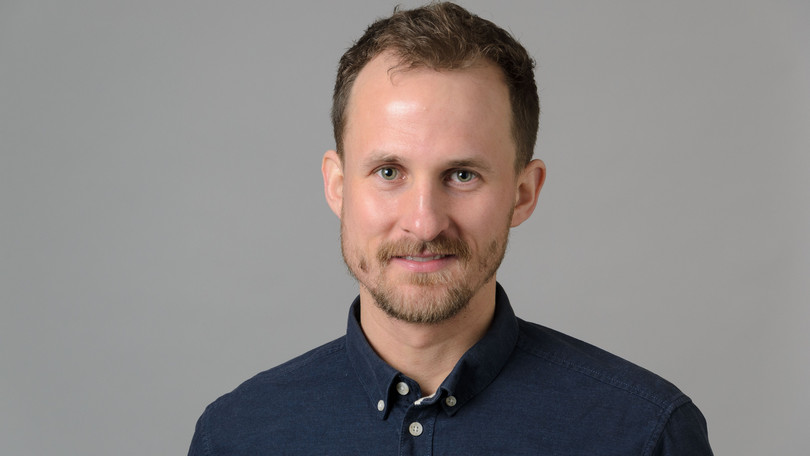 ©©2020 Peter Morenus/The University of Connecticut
©©2020 Peter Morenus/The University of Connecticut
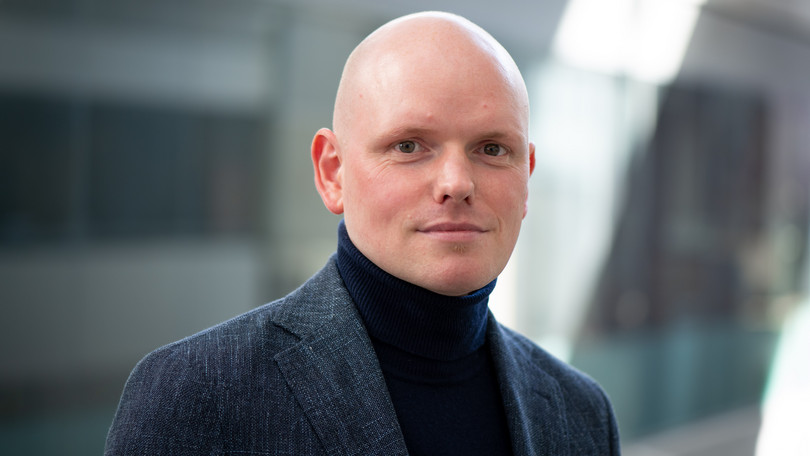 ©Stuart Robinson / University of Sussex
©Stuart Robinson / University of Sussex
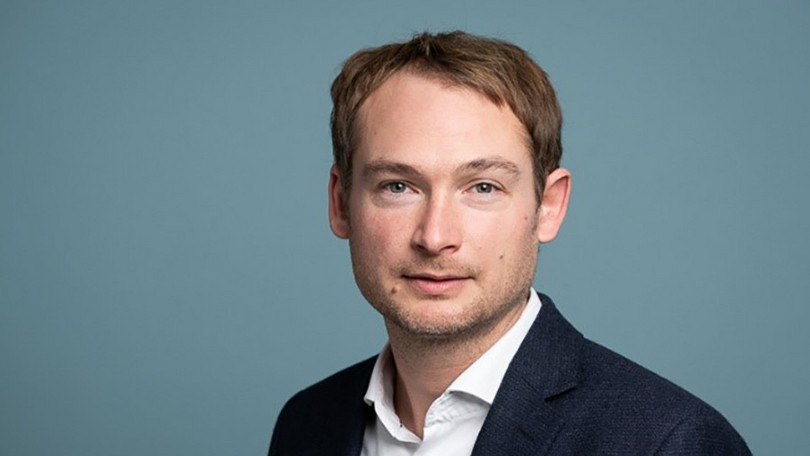 ©privat
©privat
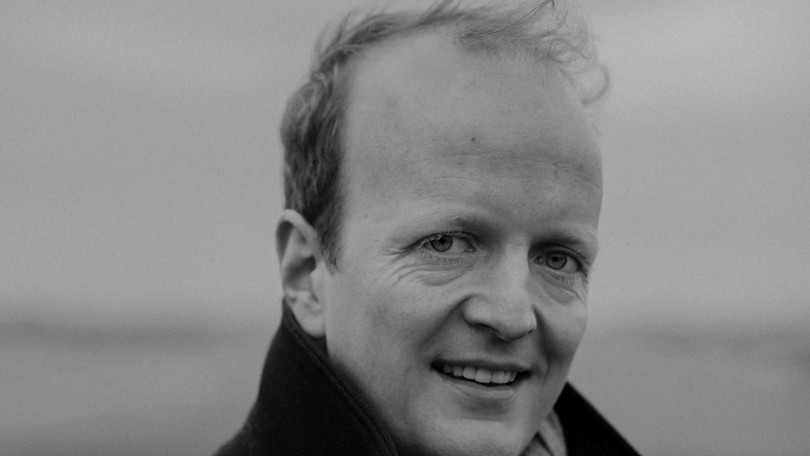 ©privat
©privat
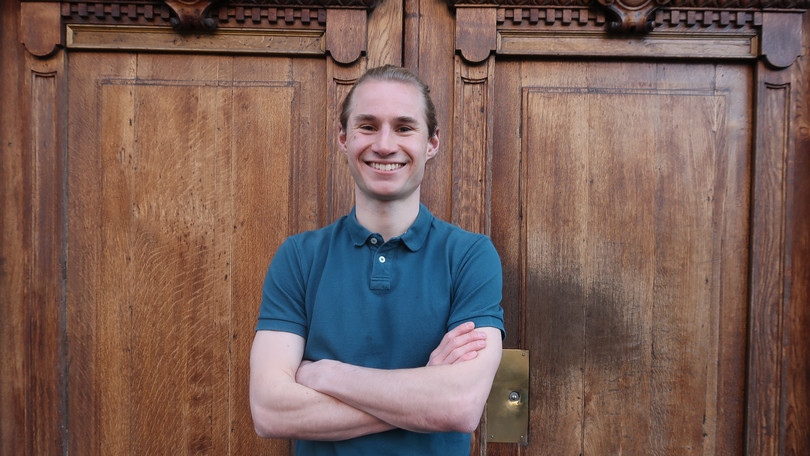 ©privat
©privat
 ©privat
©privat
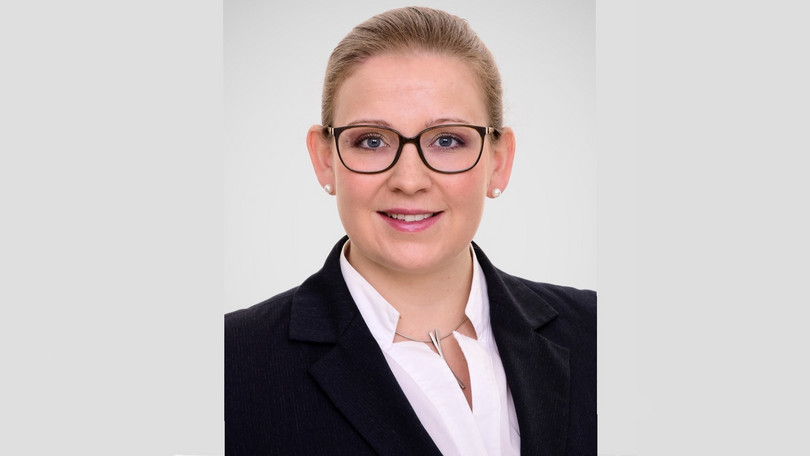 ©Wolfgang Brack
©Wolfgang Brack
INGA studied the bachelor in Economics at Leuphana College:
The learning environment in the economics programme at Leuphana University Lüneburg was very close and personal. Due to the reduced number of students I could quickly establish a close relationship with fellow students and professors. In addition, I was able to meet a lot of students from other disciplines. It was nice to have the opportunity to pursue my personal interests beyond economics and gain new insights from other field of studies through my minor and Complementary Studies.
I particularly liked the courses in industrial economics. Not in vain, after my bachelor studies I have been able to apply my knowledge in this area directly in the consultancy sector. Today, I work for a large Danish energy company, where I analyse the development of markets and competitors. From my bachelor studies in economics, my knowledge of data analysis and game theory are particularly helpful for this job.
LUKAS studied the bachelor in Economics at Leuphana College:
In my opinion, Leuphana University Lüneburg is one of the best places in Germany to study an undergraduate programme in economics. Excellent education is one thing. But the Leuphana experience is much more than that: The Leuphana Campus is an incredibly lively and inspiring place where students from a wide variety of disciplines meet. You can get involved in one of the many student initiatives or – like me – start an own initiative and build a tiny house on the Leuphana Campus. In the Complementary Studies, I learnt a lot about social inequality and sustainability, while my economics lectures instructed me data competence and structured thinking – two very contemporary and demanded skills.
After a semester abroad in London and two internships at leading German economic research institutes, I am currently studying the Master in Economic and Social Sciences at Bocconi University in Milan, one of the best universities in Europe. Leuphana University Lüneburg prepared me well for this demanding program and, moreover, my time in Lüneburg was very enriching and simply wonderful. That is why I would study at “Heide-Harvard” again.
NILS studied the bachelor in Economics at Leuphana College:
I really appreciated the applied and empirical focus of my degree as well as the good sense of community which was helped by fact that the Institute of Economics at the Leuphana University Lüneburg is fairly small.
I ended up doing a PhD focused on empirical labour economics, having met my supervisor during my degree – which was again a very supportive environment and a good starting point for my career.
Afterwards I decided to stay in academia and ended up in the UK at Newcastle University, where I still work as a Professor of Economics. I still do the same sort of things I started doing in my degree – doing empirical work on questions that interest me and have some policy relevance. I believe Lüneburg is good place to get started with this sort of work and would recommend it to any student interested in applied work.
FELIX studied the bachelor in Economics at Leuphana College:
In addition to the good supervision by the teaching staff and the variety that results from the combination of the General Studies programme (“Studium Generale“) and the minor studies, I particularly liked the focus on empirical methods. Through seminars, in which first own empirical studies had to be conducted, I found interest in empirical work.
It is precisely this empirical focus that I have further developed during my master's and doctoral studies at the Humboldt University to Berlin. The focus of my research is on economic history, political economy and inequality. I currently work as a PostDoc at the Humboldt University to Berlin.
SASCHA studied the bachelor in Economics at Leuphana College:
I can recommend the undergraduate programme in economics at Leuphana University Lüneburg to anyone who values structured and good teaching, sound methodological and subject expertise as well as a close supervision by the teaching staff. The programme offers the ideal introduction to exploring fundamental phenomena of economics down to their core. The small classes were conducive to a pleasant discussion culture both in lectures and seminars. In the later courses of the programme one can specialise. Overall, the study model of the Leuphana University Lüneburg is unique as it enables to meet different students from other disciplines and gain insights into the work in these different fields.
Combined with the incredible range of student initiatives and the opportunity to get involved in them – that is what made the Leuphana University Lüneburg so appealing for me. After completing a Master’s degree in Finance and Accounting – also at Leuphana University Lüneburg – , I currently work as a research and teaching assistant and pursue my doctorate at the Leuphana University Lüneburg.
LUKAS studied the bachelor in Economics at Leuphana College:
I have very positive memories of my Bachelor degree in Economics (with minor in Political Science) at Leuphana University Lüneburg. On the one hand, it was very enriching that the studies in economics were always integrated into a broader scientific framework. In particular, the Leuphana Semester and the minor studies enabled me to compare the economic thinking with approaches from other disciplines. On the other hand, I particularly enjoyed learning the analytical approach of the economic science. I gained an empirical approach to economics particularly thanks to the electives. In these seminars, I did not only learn to examine existing theoretical considerations with econometric methods, but also to develop my own research ideas, which I could concretize in my bachelor thesis.
After my bachelor studies, I completed a Master's degree in Quantitative Economics – with a special focus on statistical and econometric methods – at CAU Kiel. Currently I am doing my PhD at the Ruhr Graduate School in Economics and I work at the Chair of International Economics at the University of Duisburg-Essen. This only confirms that studying at Leuphana University Lüneburg has motivated and prepared me for an academic career.
FELIX studied the bachelor in Economics at Leuphana College:
The study programme in economics at Leuphana University Lüneburg is characterised by a clear structure and a broad set of electives. The courses in microeconomics and macroeconomics build well on each other, so that there is a strong interaction and consolidation of knowledge. At the same time, students carry their own research projects, which gives the opportunity to apply the theoretical knowledge learned so far and to understand the strong link between theoretical modelling and real world problems.
The focus of the study programme at Leuphana University Lüneburg is not only on proficient education but also on the exchange between disciplines. This exchange is partly possible due to life on campus. Together, this exchange illuminates several dimensions and enriches one's own point of view. In this process, the good supervision by the teaching staff provides tailor-made individual support. Overall, the study programme prepared me well for my future career. After my Bachelor degree, I had a smooth transition to my Master's in taxation in Göttingen. Currently, I am working on my doctorate at the University of Rostock where I do research on the effects of government action.
RENKE studied the bachelor in Economics at Leuphana College:
I started my bachelor’s degree in business psychology at Leuphana University Luneburg in 2008. Thanks to the flexibility of the Leuphana’s bachelor program I discovered my passion for economics. I was able to take elective courses from different disciplines and even finished with a double degree in economics and business psychology.
After my master’s studies in economics at the Humboldt University of Berlin and my doctorate at the German Institute for Economic Research, I now work as a postdoc at the University of Lausanne. Here, I research in the field of behavioral economics and still gain advantage from my two bachelor’s degrees at the Leuphana. Hence, I can warmly recommend the program. It allows for intellectual curiosity and the supervision is top-notch. I consider the personal and familiar environment to be ideal for freshman students.
JOHN studied the bachelor in Economics at Leuphana College:
I decided to study at Leuphana University of Lüneburg because of the already innovative and interdisciplinary courses and the very good supervision ratio. In particular, I really liked the possibility of combining courses in economics with courses in political science and law, while at the same time learning about the fundamentals of economics. My major in economics and empirical economic research at the Institute of Economics was very formative for me, not least because of the high standards, the dedicated teaching staff, and the linking of research and teaching.
Since 2019, I have been teaching economics myself as Professor of Economics and Location Policy at the Hamburg University of Applied Sciences. In addition, I have been working as a senior analyst in scientific policy consulting for the Monopolies Commission in Bonn since 2014. One of the most interesting aspects of my professional work is the application of economic theories and econometric methods to analyze real-world problems. During my studies I was taught the necessary theoretical and empirical skills for this. In addition, however, above all the ability of a fast familiarization and logical structuring of complex new problems.
I have very fond memories of my studies at Leuphana University of Lüneburg, not at last because of the intellectually stimulating and very personal learning atmosphere around the central campus.
Career and occupational orientation in economics studies
Tailored placements and personal research and practical projects during your Bachelor degree introduce you to relevant areas of work and give you a taster of what professions you might consider even before you have graduated.
Practical experience while you study
At Leuphana College you can integrate practical experience into your degree with the Complementary Studies Practical Phase Basic Programme.
Careers Service
The Careers Service provides professional and careers advice and assistance:
Masters after a Economics Bachelor
After your Bachelor, you also have the chance to develop your economics expertise further in a Masters at a university in Germany or abroad.
Masters at Leuphana Graduate School
Leuphana Graduate School offers a range of Masters in Governance & Law and Management.
Master in Economics, Berlin
Felix Kersting, bachelor graduate in Economics at Leuphana College, reports on his master in Economics at Humboldt University in Berlin.
Master Programme
At the outset, the formal mathematical approach of the program must be emphasized. This is different and also demanding compared to the experience at Leuphana University of Lüneburg.
Otherwise, apart from the usual three compulsory courses on microeconomics, macroeconomics and econometrics and three elective courses, which are mainly related to microeconomics, the master's program leaves a lot of freedom. For example, it is possible to take some courses on behavioral economics. Also dominant are courses on labor economics, econometrics and - which is rather rare in Germany - economic history.
In addition, a quarter of the programme can be chosen completely freely. On the one hand, this makes semesters abroad possible, and on the other hand, all master's courses can also be taken by all other faculties - a perspective that is exciting for Leuphana bachelor's graduates.
An advantage is the possibility to attend courses of the other Berlin universities. With the German Institute for Economic Research (DIW) and the Science Center Berlin (WZB), there are good opportunities to be active in the research field while studying.
Compared to the Leuphana University of Lüneburg, the support falls off in some places. If mathematics is not a deterrent, the master's program offers a variety of opportunities in an exciting environment.
Master in Economics, Kiel
Gabriel Schultze and Marten Kürschner, bachelor graduates in Economics at Leuphana College, report on their Master studies in Economics at the Christian-Albrechts-Universität zu Kiel.
Master's Programme
In general, the master's programme is highly recommendable. The structure of the programme provides that three out of eight economic focal points are chosen. Within each focus, a significant number of wide-ranging lectures are offered. In addition, one seminar must be taken in each concentration.
One advantage is that all lectures are held in English, which should not be a deterrent in any way. The supervision ratio is adequate and since the master's classes are manageable (Economics: about 45 people), you can get in touch with professors and their research if you want to.
However, the mathematical orientation of economics is a challenge. For graduates from Lüneburg, this can already mean that some prerequisite skills have to be worked up in the beginning of the master's degree, which, however, is not an insurmountable hurdle.
Due to this quantitative orientation, the interdisciplinarity and application-orientedness of economics, which we value and which is given higher priority at Leuphana, is not as emphasized. For those interested, the master's programme "Quantitative Economics" is also offered, in which the focus is even more on the areas of statistics and econometrics.
Perspectives
The master's program in Kiel offers a good education in quantitative research methods and thus also for a subsequent doctorate.
Master in Economics, Münster
Cord-Henning Wente, bachelor's graduate in Economics at Leuphana College, reports on his master's studies in Economics at the Westfälische Wilhelms-Universität Münster.
Master's programme
The studies at the WWU in Münster were to my complete satisfaction and I felt well prepared for the Münster master's with the training of the Lüneburg economics studies (Major). In particular, the good quantitative training (mandatory econometrics in the 3rd semester) benefited me in the master's programme.
The economics master in Münster is characterized by the fact that four compulsory modules consisting of two different courses are offered, of which three modules are mandatory.
Studying at a university like the WWU with many economics master's students offers great opportunities for choice: Thus, there were a variety of elective modules from day one. I focused on studying transport economics, time series analysis, international trade economics (in English), applied microeconometrics, fiscal policy, and alternative measurement of wealth, value added, and happiness.
My master's thesis was on the topic, "The Problem of Federal Government Debt: The Impact of Bailout Expectations from a Game-Theoretic Perspective." I handed in my master's thesis at the end of February 2013. As expected, I will receive my Master's degree in the course of spring.
Perspectives
In the Wirtschaftswoche university ranking, the WWU has a very good position. From this, it can be concluded that my studies were certainly not easy and that one has the best chances on the job market with the Münster master's education.
The economics master's program at the WWU - according to a staff member at the examination office - is supposed to be less of an aptitude for a career in business enterprises compared to VWL master's programmes at other universities.
Contact & Counseling
Initial Information
Information Office (Infoportal)
Building 8, ground floor
Universitätsallee 1, 21335 Lüneburg
Fon +49.4131.677-2277
studierendenservice@leuphana.de
Opening hours
Term time & term break:
Mon - Thu 9 - 16 h
Fr 9 - 12 h
Arrange an appointment
College's Student Counselling Service
Building 8, ground floor
Universitätsallee 1, 21335 Lüneburg
Open Consultation Hours
Wed 11 – 13 h (on campus)
Thu 16 – 18 h (via Zoom)
Programme Director
- Prof. Dr. Boris Hirsch
Programme Coordinator
- Miguel Abellán
